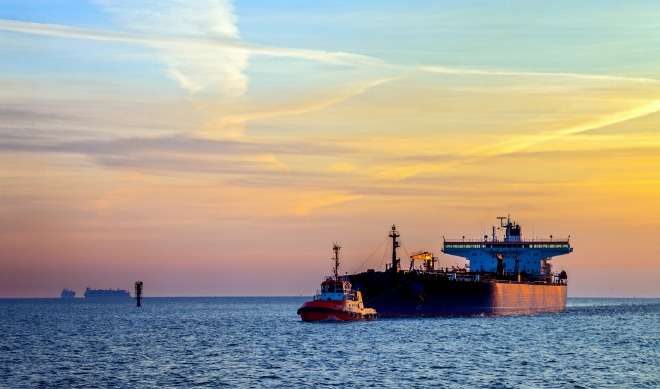Owning the future

Diane Gilpin from the Smart Green Shipping Alliance reports from Monday’s Ambition 1.5oC: Global Shipping’s Action Plan – an event on the sidelines of COP23 in Bonn.
It wasn’t your usual conference – every delegate was actively encouraged to get stuck in, to share views and expertise. Throughout the day the room was abuzz with the exchange of ideas, discussions, disputes and conversations from across industry – shipowners, technologists, engine manufacturers, classification societies, entrepreneurs, bankers, financiers, NGOs, data specialists, academics. All of this activity was overseen by UN observers.
To make it easy for any more bashful attendees to participate in the conversation with confidence, there were, throughout the day, on three occasions when we broke into small work groups to discuss in depth, for an hour or more, broad topics that had just been surfaced by expert panellists. Using an electronic data sharing platform brilliant, speedy notetakers from some of the world’s leading maritime universities captured the discussions and fed the notes to a lead moderator tasked with rapidly synthesising the data, picking out broad trends, common themes and topics of collective interest.
The keynote address was delivered by Dr Jenifer Baxter, sustainability lead at The Institution of Mechanical Engineers. Her fresh view of shipping’s challenges enabled her to draw comparisons with other similar sectors she worked with. She pointed to the power industry describing how policy had set an ambitious framework for decarbonisation. Regulations and economic instruments created mechanisms to initiate the development and subsequent uptake of renewables technologies that triggered a rapid reduction in manufacturing costs making clean power output more available which, in turn, helped improve grid stability. She pointed to other sectors embracing change – that all the major automotive brands were committed to low carbon, zero emission, hybrid cars. Heavy goods vehicles were using hydrogen fuels, trains were running on gas. These sectors had established decarbonisation strategies in their own complex industries and improved their profitability and long-term sustainability as a result.
The shipping industry is complex. Complexity can be allowed to foster inertia. Policy stimulates positive outcomes. Lack of tangible action from the IMO had created a palpable sense of frustration amongst large swathes of the audience but there was a refusal, by many, to be paralysed by the fear of reducing emissions ahead of regulation. Knowing that sooner or later, one way or another, policy will be come was sufficient to galvanise a new determination to lead the industry. In my workgroup there were strong voices suggesting we “ignore the IMO” and develop local work-arounds across different national and local jurisdictions – replicating something like Norway’s NOx Fund that, it was agreed, had stimulated positive change.
‘The Wall’ was the highlight of the event. During the course of the long and demanding day one side of the RhineFantasie, our 85 m long floating venue overlooking the UNFCCC climate conference venue in Bonn, became an artwork. The multiple spontaneous, authentic conversations became visual. Themes were structured and grouped and represented in cool and inspiring graphics. We were able to grasp both the enormity of the big picture and pick out the multiple opportunities arising from the complexity.
Our collective challenge was brought to life, we collaborated and garnered more courage as we felt a common sense of purpose emerging. We co-created our action plan which has now been delivered to the COP23 climate conference. It includes commitments to continue to work for a CO2 tax/levy to stimulate the uptake of technology; workgroups committed to the target to reduce CO2 emissions by 50% of 2008 levels by 2035 and by 70% by 2050/60. Delegates wanted to see a tax on the dirtiest fuel that supports an innovative fund for global demonstrations of low carbon shipping.
There was a general consensus that we have the technology either available right now or in the pipeline that we need to get the job done and that by deploying modularity – building ‘1.5-ready ships’ – we would enable the industry to continually adapt as new technologies came of age and could be included in the original design.
There was a strong urge to tell better stories about the industry, about what 1.5 really means. To articulate the climate challenge in terms that meant more to us as humans – that sea levels will rise 6 ft in the lifetime of a child born today. We wanted to tell people that shipping was making meaningful progress in many areas and, even as our small diverse group discussed it, we brought together a powerful portfolio of inspiring stories. We felt that making these examples – and more like them – widely known would help stimulate a multiplier effect across the industry by encouraging others to take action.
We’d all felt empowered and encouraged by the event and vowed not only to maintain contact, to ensure we organised follow-up events but to hold each other accountable, to regularly check ion with each other and test how we were living by our pledges to make a difference. We committed to be the vanguard of the coalition of the willing, the owners of the future.
